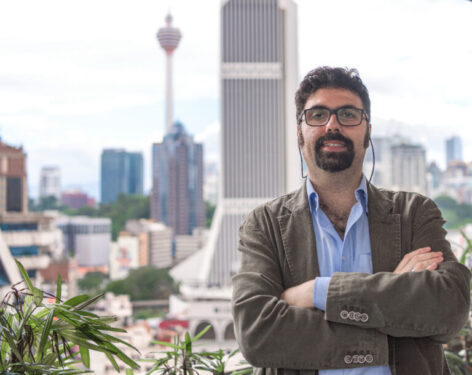THE European Union (EU), industry stakeholders and consumers across the world should make an effort to recognise the Malaysian Sustainable Palm Oil Certification Scheme (MSPO) as an important contributor in the battle against deforestation, said Center for Market Education (CME).
CME urged EU to recognise the hard work Malaysia has done to make its palm oil industry more environmentally sustainable.
As Malaysia embarks on its official eight-day trade mission to the EU in Brussels, Belgium, and London led by Deputy Prime Minister and Plantation and Commodities Minister Datuk Seri Fadillah Yusof, CME is of the opinion that it is vital to bring up this issue at this time.
“If the EU is truly serious about addressing deforestation issues and ensuring the sustainability of palm oil, then it should collectively seek to accept, embrace and promote MSPO as a recognised contributor towards environmental sustainability for the whole sector,” said CME CEO Dr Carmelo Ferlito.

Malaysia’s trade mission is in response to the EU bringing in stringent anti-deforestation rules (EUDR) which aim to prevent deforestation due to agricultural activities.
However, the implementation of EUDR will negatively impact free and fair trade as it targets agri-commodity products, which could impact millions of smallholders from developing countries, potentially impacting global supply chains.
According to the CME, MSPO is an equitable and practical certification scheme that can further strengthen sustainability practises throughout the palm oil production value chain.
“The MSPO is inclusive as it aims to bring in smallholder farmers and make them more accountable for their actions and farming practises,” added Dr Ferlito.
“Oil palm is a source of income for over seven million smallholder farmers globally and in Malaysia, smallholder production accounts for 40% of total palm oil plantation areas.”
Moreover, he pointed out that while MSPO shares the same objectives and goals with certification schemes like the Roundtable on Sustainable Palm Oil or RSPO, the core differentiation is in MSPO’s focus on addressing the needs of smallholder farmers and the demands placed upon them.
“For one, the significantly lower cost of MSPO certification has made it more attractive to smallholder farmers that depend on palm oil for their livelihoods.”
Dr Ferlito also noted that if it is expensive to be certified, cost-sensitive and financially limited smallholder farmers will turn away from any form of certification, depriving them of an opportunity to improve their operations in a sustainable manner and potentially impacting their access to international markets.
Furthermore, the lower cost factor coupled with making MSPO certification compulsory has resulted in 96% of all palm oil farming in Malaysia being MSPO certified.
This means that nearly all companies and smallholders in Malaysia are producing and selling fresh fruit bundles (FFB) from a planted area that is managed in an environmentally and socially responsible manner.
Dr Ferlito further explained that MSPO is also a mandatory organisation that requires all participants to adhere to its rules and standards, which are comprehensive and stringent.
“MSPO certification scheme requires independent environmental, social impact assessments to be conducted and reviewed prior to land conversion and replanting, and strictly states that no forms of forced or trafficked labour, or child labour, are used.
“The MSPO Certificate is only valid for five years and comes with annual surveillance audits. Moreover, the certification scheme itself is reviewed once every five years through a multi-stakeholder consultative approach as a means to remain relevant and updated with industry best practises.”
According to Dr Ferlito, MSPO is not meant to compete with or replace existing certification schemes.
Nevertheless, they reckoned that sustainable palm oil can be strengthened further through the greater involvement of every participant in the supply chain including nurseries, smallholders, large plantations, mills and refineries.
“To achieve this, policymakers across the world must be progressive in accepting and promoting an inclusive, localised and comprehensive certification scheme like MSPO that can affect tangible change. After all, it all boils down to a matter of supply and demand.” – May 31, 2023
Main photo credit: Business Benefits









